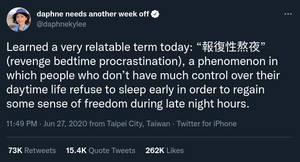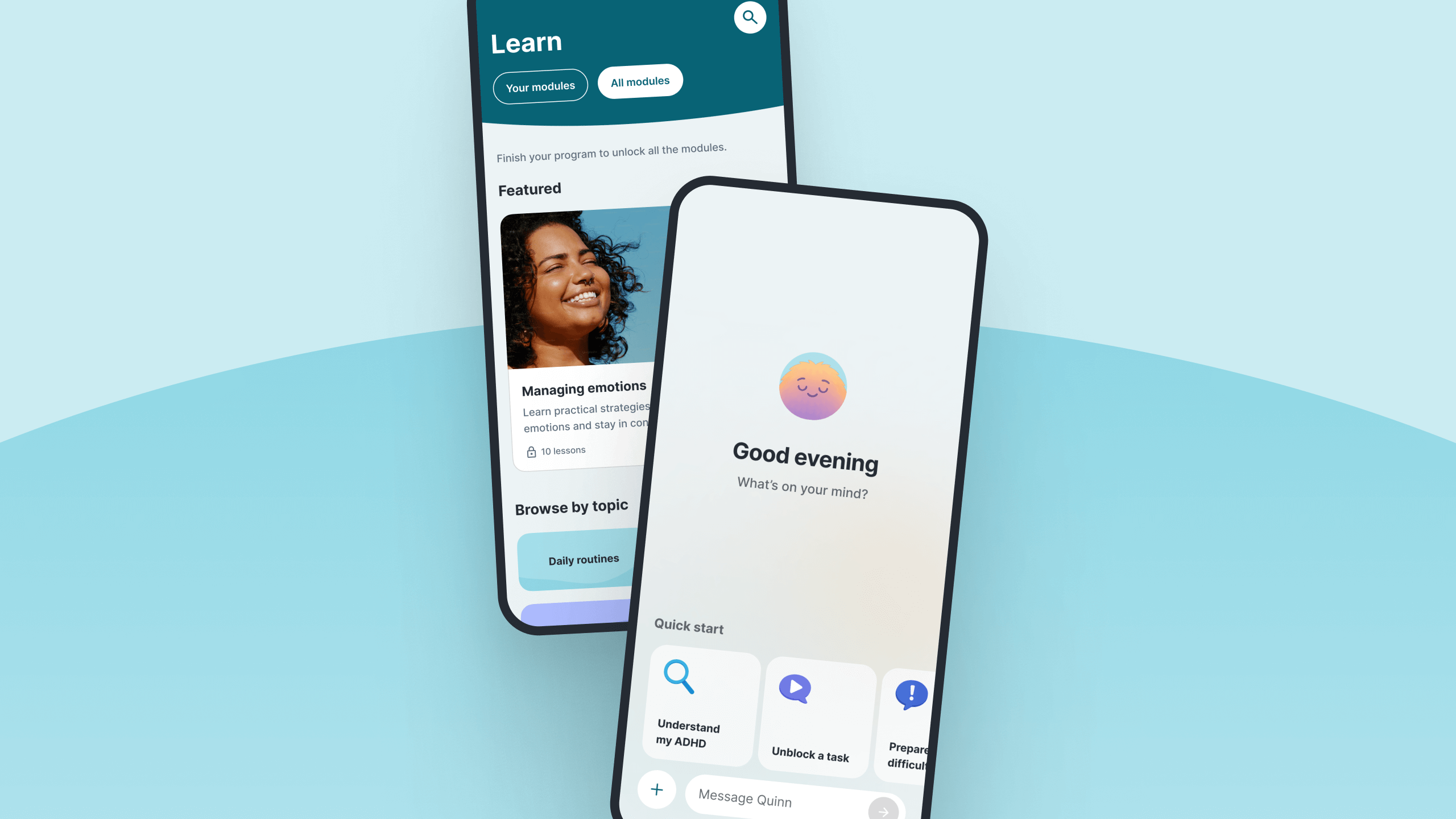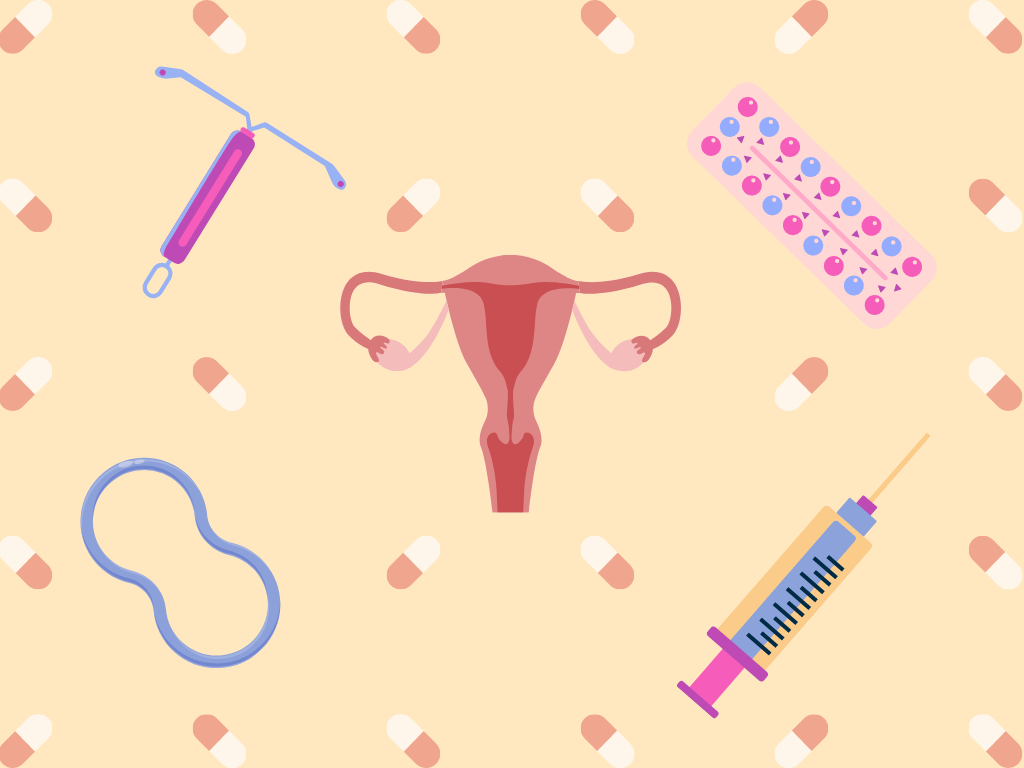Many ADHDers often put the lull in their own lullaby. Let’s explore this phenomenon from A to Zzz, and discuss solutions that feel more like sleeping in on Sunday and less like putting on a duvet cover. From voluntary to involuntary procrastination, there are steps to deal with both.
It’s likely that you’re reading this when your phone should be on the charger and your head on the pillow. Instead, you’re hours into a stream of relatable ADHD TikToks way past your bedtime.
You may have found this article in the ways I’m about to tell you to avoid, but you have our permission to finish this article (and then go to sleep). Have you ever laid in bed after an excruciating day of extroversion and back-to-back attempts at getting work done only to crave the humor of absurdist memes and reading /r/TIL threads?
What about listening to the latest Avril Lavigne song, rocking on over to Travis Barker’s Wikipedia, and somehow watching 23-minute YouTube videos on how drummers avoid carpal tunnel syndrome? (True story.) You then realize that if you fall asleep right now, you can get about three hours of sleep before your alarm goes off. Sound familiar? It’s a common experience.
What is Revenge Bedtime Procrastination?
Revenge Bedtime Procrastination (RBP) is the phenomenon in which people suspend their bedtimes in order to experience all of the things they didn’t get to enjoy during the day. “Revenge” refers to the refusal to sleep as an act of protest to the conditions of work, school, parenting, and whatever else takes up all of our time and energy each day.
Realizing that it’s past bedtime, when we’re blanketed in unfulfilled desires to do things we actually enjoy, affects most of us at some point - overworked people in general, but especially people with ADHD.
Examples of RBP activities
RBP can include the “one more episode” binges on Netflix, scrolling Instagram, and less enjoyable things like doom-scrolling the news until your phone drops on your sleeping face. (...just me?) The most common methods of “revenge” also tend to be go-to pursuits of dopamine and norepinephrine fulfillment for ADHDers.
In exchanging euphoria for much-needed sleep, we perpetuate a vicious cycle. We’re tired and unproductive all day, and later feel bad about how the day went. Then, we seek pleasure we missed out on at the expense of staying up late once again, which… you get the idea.
It’s easy to fall into this trap when our days are spent reading everything except the new book we want to finish, and when it’s easier to find reprieve in a quiet, sleeping world.
Work isn’t calling, nobody's texting, and your kid doesn’t need attention. It’s easier to enjoy things when everyone (except you) is asleep. The neurodiverse people reading this are likely recounting their own encounters with bedtime procrastination in greater numbers than any sheep they’ve ever counted, wondering what we can do about RBP. It may even be the case that late night bedtime procrastination on TikTok was an initial source of your ADHD revelations.
It was for me.
Where did the term "Revenge Bedtime Procrastination" come from?
Procrastinating to the point of sleep deprivation in exchange for brief bouts of enjoyment? Sounds like “revenge,” albeit a strong word choice. Where did this phrase originate from?

Recent cause for RBP conversation can be attributed to a viral tweet from journalist Daphne K. Lee, who shared her realization of the Chinese phrase “報復性熬夜” (phonetically: ‘bàofùxìng áoyè’). This translates to ‘revenge bedtime procrastination’ or ‘retaliatory staying up late’. Lee added, “people who don’t have much control over their daytime life refuse to sleep early in order to regain some sense of freedom during late night hours.”
There’s more to the etymology of this “revenge” concept, including:
- China’s 996 working hour system
- 60% of people born in 1990 or later do not sleep enough
- A 2020 study concluding that the average worker had “2.42 hours per day when they were not at work or asleep”. Including meals, self-care, recreation, and other so-called forms of “free time,” this number is 25 fewer minutes than the previous year.
The US, UK, Mexico, Germany, and Singapore are among the countries that get fewer than eight hours of sleep, for one social or cultural reason or another.
Additionally, COVID-19 blurred the lines of time and space when working from home; virtual dates and telehealth visits became our reality, merging everything into an ambiguous gray area. Especially these days, most people probably have experience with RBP and its causes. Let’s get back to how procrastination and sleep uniquely impact ADHDers.
ADHD and procrastination (in general)
ADHDers tend to have problems with procrastination, but in a different way from most neurotypicals.
People with ADHD have many reasons to procrastinate, including feelings of overwhelm, perfectionism, and the intention-behavior gap, which is the “failure to translate intentions into action.” We want to go to bed on time just like we want to get our work done during the day, both desires suffering from procrastination in different ways.
ADHDers experience time differently
Sometimes called, “meaningless abstraction”, ADHDers often see things as “now” and “not now,” complicating the voice in our head saying that we can just do the thing tomorrow. It exists now, in front of us, ready to be consumed—now or never. Those treating their ADHD with medication may also experience 'the rebound effect': “a flare of ADHD symptoms at the time a stimulant medication wears off.”
Stimulants or otherwise, our medications manage impulsivity and boost feel-good neurotransmitters. They can also come with adverse side effects, including insomnia.
ADHD and sleep
Parents, students, working professionals, and caretakers are among those most susceptible to Revenge Bedtime Procrastination. Combine these lifestyles and procrastination with sleep problems and the narrative writes itself.
In general, sleep problems reportedly affect anywhere from 25-50% of individuals with ADHD. Additionally, those who experience sleep problems are more likely to report ADHD symptoms. Strong correlations exist between sleep problems and ADHD symptoms.
ADHD can coexist with a variety of sleep disorders, but RBP is different. As Psychology Today put it,
Night owl diversions [...] may bring on a “second wind” of wakefulness.
It's then a conscious decision to stay up at one’s own expense, prioritizing immediate gratification over the ease of waking up the next morning.
How to deal with Revenge Bedtime Procrastination
The complex part of procrastinating sleep is that seeking novelty is both a solution to procrastination and the very reason RBP is such a problem. Only so much of this can be tied to our individual choices, and much of our sleep problems are a symptom to the way some cultures value work over living.
The pursuit of wealth and debt repayment crushes free time, leaving us craving the basic human need for pleasure, happiness, and relaxation. Until we shake up the whole society, though, let’s talk about what we can do about it.
1. Keep a routine.
Start with Inflow’s guide on keeping a routine, and incorporate additional tips below for a better bedtime.
2. Block out time for yourself during the day, and stick to it.
This sounds counterproductive, but take whatever it is that keeps you up at night and incorporate into your midday routine. (Yes, I'm giving you permission to schedule TikTok breaks in exchange for earlier bedtimes.) Make this time intentional.
Allow yourself sprints of dopamine to avoid marathons at night.
3. If you can, make your bedroom for sleep only
If bed is where the laptop and Nintendo switch are, it’s hard for your mind to differentiate between sleep and electronics. This includes entertainment and work, which should ideally be different environments when and where possible.
4. Get in charge of your recharge
Charge your phone in another room and/or set up focus mode features. It's much harder to pick up a distraction that isn’t nearby, especially when alarms and emergency contacts are the only permitted notifications.
5. Wind down; not up
If you like to fall asleep with a TV on...
- Play familiar content rather than new episodes of a binge-worthy show
- Turn off auto-play
- Set a sleep timer
- Turn the volume down
- Hide the remote
The same goes for those who prefer reading before bed: try re-reading a favorite book rather than doom-scrolling the news!
6. Mindset and mindfulness
Before bed, try incorporating relaxing activities, like:
- Meditation
- Journaling
- Writing to-do lists
- Breathing Exercises
- Stretching
💡 Pro Tip! Writing is a great way to let out all of your thoughts and feelings from the day, and for tomorrow's anxieties!
7. ADHD medication and supplements
Ask your doctor about ADHD medications, changing your dosage, or switching to a slow/extended release option if you think your medication is affecting your sleep.
Consider using supplements like melatonin as well to aid sleep.
Final thoughts on resisting a rest
Those of us with ADHD tend to be really hard on ourselves. When recognizing our behaviors, we try to find solutions that allow us to navigate a neurotypical world. It’s okay to acknowledge how we experience the world differently all day, and how that manifests as night falls. It’s also okay to find joy in simple pleasures and stay up late sometimes.
We all do it, ADHD or not. The key is to find balance and to feel in control, at least most of the time. With the right know-how and resources at hand, I believe we can do it.
...after one more episode?

.png)






